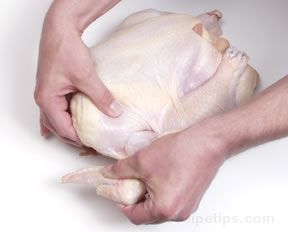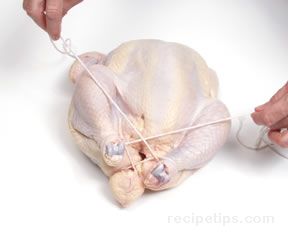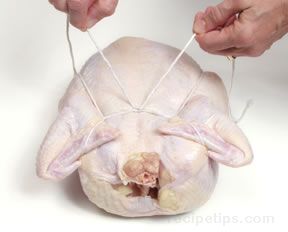|
Poultry does not have to be trussed before it is roasted. When poultry is trussed you may encounter a problem with the white and dark meat obtaining the proper doneness. It takes longer for the dark meat in the inner thigh area to reach its proper doneness when it is trussed, which should be 175°F to 180°F. When the dark meat is cooked until it reaches the appropriate temperature, the white meat will many times be too dry. If it is important that the bird keeps its shape while roasting, it is best to truss it. If it isn't important that it keeps its shape, it is generally better not to truss the chicken, because the white and dark meat will cook more evenly. | 


